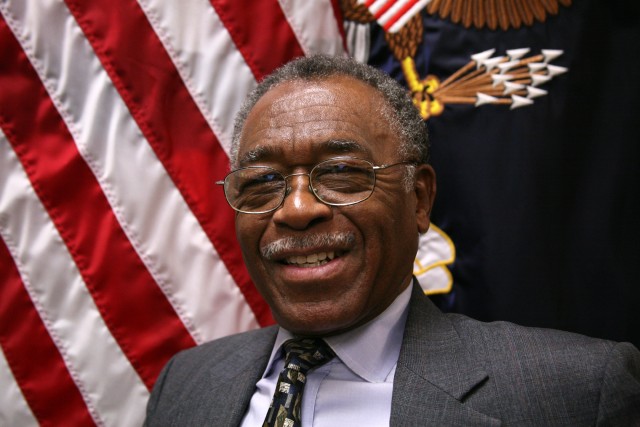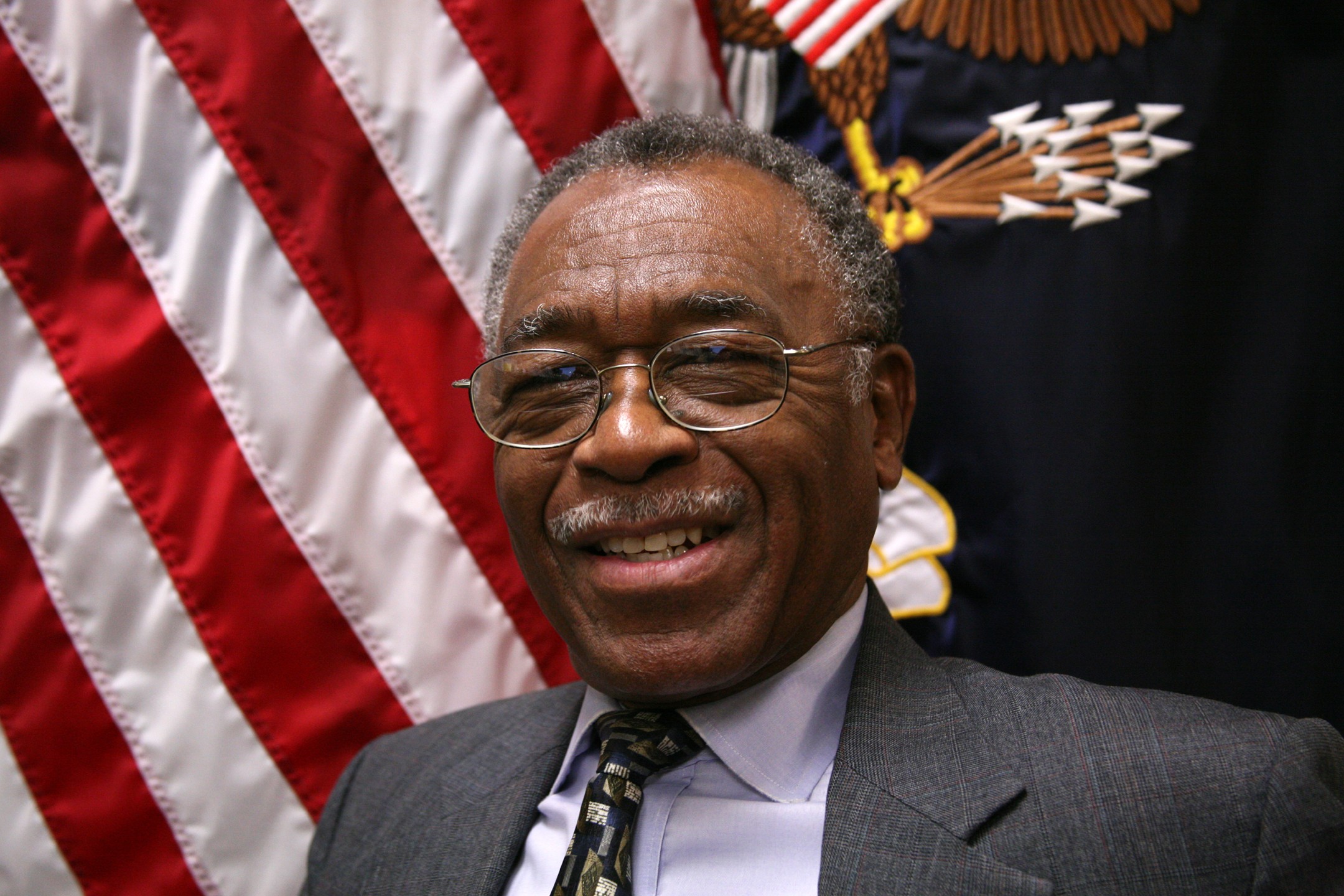Name: Melvin Kelley, Equal Employment Opportunity Officer, U.S. Army Space and Missile Defense Command/Army Forces Strategic Command, Redstone Arsenal, Ala.
Age: You can guess, but I'm not saying
Hometown: Paint Rock, Ala.
Years of federal service: 36 years of federal civilian service; 31 years in the military (much of the time is concurrent)
Education: Bachelor of Science in biology and physical science, Tennessee State University; Master of Science in urban planning from Alabama A&M University; additional graduate-level coursework in physics, University of Michigan, and biology, North Carolina A&T University
Marital status: Never been married
Children: None
Activities/hobbies: Baseball, volleyball, basketball, horseshoes
Favorite movie: "Guess Who's Coming to Dinner" and old westerns
Favorite TV show: CNN news coverage/shows
Favorite band: Temptations and the music from the Grand Ol' Opry
Favorite thing about working for the Army: Working for the Army disciplines you to become organized i.e., think and plan before acting. To accomplish a mission, you're going to have to plan and get organized, you also have to learn to analyze and observe. To function in the Army's EEO arena, one has to observe all human actions/reactions, analyze situations and use deductive reasoning. If these are omitted, the train usually leaves you at the station.
What made you want to work for the Army: Back in the 1970s when I started, working for the government gave a person more public respect. It opened doors and other avenues for public and civic service opportunities that could really make a difference. For many who didn't work for the government, those opportunities just weren't there.




Social Sharing